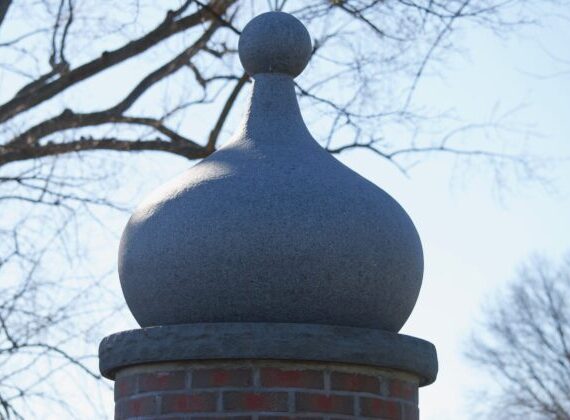
The conversation was supposed to continue until 3pm, but well before that time, the library announced the panel would be wrapping up, despite panelists and audience members showing continued interest in having an actual conversation about the Black Panthers and continued racial tensions. This was not received well and people demanded to know why. There was mention of jazz starting at 3pm in the atrium. After some verbal resistance, the event was allowed to resume and panelists ended it on their own, just a few minutes before the official stop time.
Butch Lewis, co-founder of the Hartford chapter of the Black Panthers Party, observed that “we are more segregated now” in the city than when the party was active. He named the number of anti-poverty organizations in the city; without spelling it out, Lewis implied that the poverty agencies have been benefitting from this social injustice, rather than addressing it.
When looking at how race relations have changed, he was not the only person in the room to notice that the education system suffers. Councilwoman Cynthia Jennings, during Q&A, noted that while the Black Panther Party “gave us some alternatives,” Hartford still has “educational disparities” and that there are no black department heads.
Previously, Lewis said, “education out here [has] become a money thing,” with children not being taught about who they are. When an audience member asked why there was an Asian-themed school and Latino-themed school, but none for African Americans in Hartford, Lewis replied that when a person is looking for who he is, he’s preoccupied and no threat. It’s only when a person knows himself that he becomes a threat to others. He and others suggested that black history is no longer being taught in the schools here.
Then

With moderator Lew Brown not sticking to the script on Sunday, it took some time for the conversation to get off the ground, but he thanked the planners of this program for having the “intestinal fortitude” to create the panel. He set the scene with some historical information, like noting how a place on the corner of Barbour and Westland was raided by the FBI while a sniper was ready to kill Butch Lewis. This was at a time when Lewis was making sure kids at St. Michael’s were being fed.
Panelist Dr. Stacey Close provided context: “there was an incredible fear” of an increase in the black population in Hartford, first during the 1920s, and then again in the 1960s.
The “Panthers were very sharp…when constructing their image,” panelist Dr. Jeffrey Ogbar said, but what resonated with their target audience “scared the bejesus out of other folks.” The other folks included the fourth estate.

Ogbar explained that the Black Panthers were not “ideologically static,” nor were all chapters entirely on the same page. What the organization was notable for was both its “rhetoric and application of self defense” against what Ogbar called “police terrorism.”
COINTELPRO, he said, had over 100 campaigns against just the Black Panther Party.
Video from a Hartford community meeting in June of 1969 was shown at Sunday’s event, with concerns about destruction being aired by mostly unnamed individuals in the video. There were reports of windows being smashed at Capen and Garden so that people could steal liquor. Windows were also broken without looting. People were getting arrested without any reason apparently being given for their arrest. People on Main Street from “the tunnel” up to Mather were warned to stay off the streets at the time; they were told to keep on their porches. Then, there were reports of police firing tear gas canisters onto front porches.
It took until Q&A for Lewis to be asked specifically about the origins of the Black Panthers in Hartford. Lewis said that he “just came back from Vietnam…we just left Hartford and came back to the same bowl of crap.”
“What pissed me off,” Lewis said, is that “we lived in the valley of death.” From Springfield to New Jersey was where guns and machines for war were being built. In particular, he was incensed about Colt: “they gave us a bullshit weapon that never worked [in Vietnam].”
So, the Black Panthers came about in Hartford because of this community, but also because of those coming back from Vietnam.
What is Now and to Come
Lewis was asked if he thought general social conditions had changed since the time of the Black Panther Party.
“Has it changed? It hasn’t changed that much…it’s only been covered up,” he said. “It’s hard to get rid of northern segregation. It’s the most hidden segregation.”

Councilman Larry Deutsch asked “where do we go from here in terms of unity in the struggle?”.
“You have to be a human being, first of all,” Lewis replied.
Jack Dougherty, a professor at Trinity College, said he had submitted a FOIA request to the FBI regarding the Black Panthers in Hartford and was told that the 1500+ pages would be available online in the next week or so.
Butch Lewis has donated his papers to the Hartford History Center, located within the Hartford Public Library.

Aida Nunez
I applaud you. You remind me of the song Brave. thank-you for being brave enough to write about the things that matter
Kerri Provost
Thanks, Aida!
It helps to not have any commercial sponsors demanding that we dial it down.
Brendan
Butch Lewis trivia: he owned a sweet Peugeot bike
Kerri Provost
Owned? Doesn’t have it any more?
Brendan
I can’t remember if he said he still had it or not when he told me the story of it.